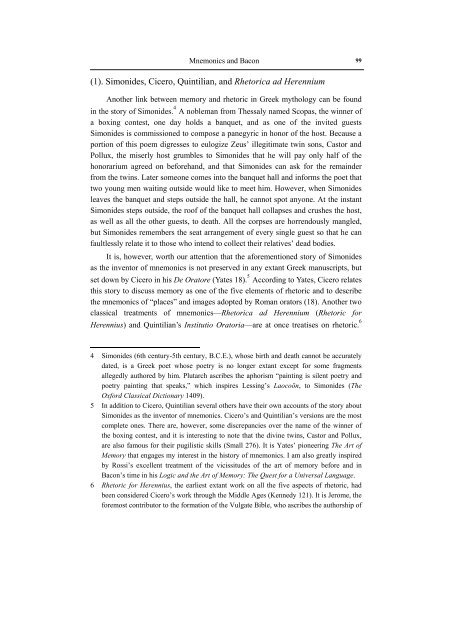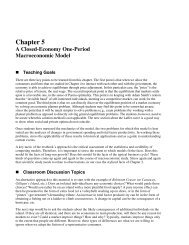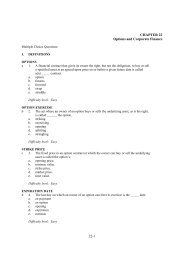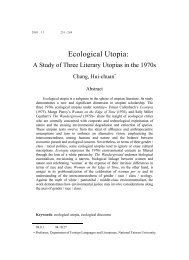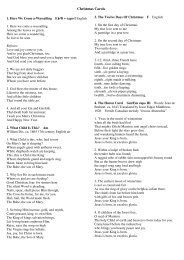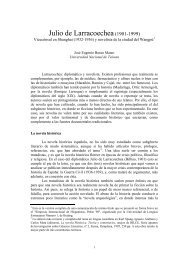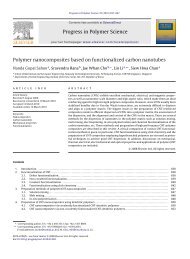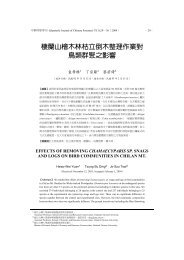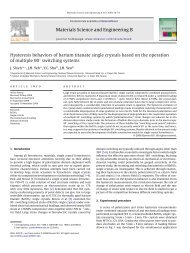Mnemonics and Bacon
Mnemonics and Bacon
Mnemonics and Bacon
Create successful ePaper yourself
Turn your PDF publications into a flip-book with our unique Google optimized e-Paper software.
<strong>Mnemonics</strong> <strong>and</strong> <strong>Bacon</strong><br />
(1). Simonides, Cicero, Quintilian, <strong>and</strong> Rhetorica ad Herennium<br />
Another link between memory <strong>and</strong> rhetoric in Greek mythology can be found<br />
in the story of Simonides. 4 A nobleman from Thessaly named Scopas, the winner of<br />
a boxing contest, one day holds a banquet, <strong>and</strong> as one of the invited guests<br />
Simonides is commissioned to compose a panegyric in honor of the host. Because a<br />
portion of this poem digresses to eulogize Zeus’ illegitimate twin sons, Castor <strong>and</strong><br />
Pollux, the miserly host grumbles to Simonides that he will pay only half of the<br />
honorarium agreed on beforeh<strong>and</strong>, <strong>and</strong> that Simonides can ask for the remainder<br />
from the twins. Later someone comes into the banquet hall <strong>and</strong> informs the poet that<br />
two young men waiting outside would like to meet him. However, when Simonides<br />
leaves the banquet <strong>and</strong> steps outside the hall, he cannot spot anyone. At the instant<br />
Simonides steps outside, the roof of the banquet hall collapses <strong>and</strong> crushes the host,<br />
as well as all the other guests, to death. All the corpses are horrendously mangled,<br />
but Simonides remembers the seat arrangement of every single guest so that he can<br />
faultlessly relate it to those who intend to collect their relatives’ dead bodies.<br />
It is, however, worth our attention that the aforementioned story of Simonides<br />
as the inventor of mnemonics is not preserved in any extant Greek manuscripts, but<br />
set down by Cicero in his De Oratore (Yates 18). 5 According to Yates, Cicero relates<br />
this story to discuss memory as one of the five elements of rhetoric <strong>and</strong> to describe<br />
the mnemonics of “places” <strong>and</strong> images adopted by Roman orators (18). Another two<br />
classical treatments of mnemonics—Rhetorica ad Herennium (Rhetoric for<br />
Herennius) <strong>and</strong> Quintilian’s Institutio Oratoria—are at once treatises on rhetoric. 6<br />
4 Simonides (6th century-5th century, B.C.E.), whose birth <strong>and</strong> death cannot be accurately<br />
dated, is a Greek poet whose poetry is no longer extant except for some fragments<br />
allegedly authored by him. Plutarch ascribes the aphorism “painting is silent poetry <strong>and</strong><br />
poetry painting that speaks,” which inspires Lessing’s Laocoön, to Simonides (The<br />
Oxford Classical Dictionary 1409).<br />
5 In addition to Cicero, Quintilian several others have their own accounts of the story about<br />
Simonides as the inventor of mnemonics. Cicero’s <strong>and</strong> Quintilian’s versions are the most<br />
complete ones. There are, however, some discrepancies over the name of the winner of<br />
the boxing contest, <strong>and</strong> it is interesting to note that the divine twins, Castor <strong>and</strong> Pollux,<br />
are also famous for their pugilistic skills (Small 276). It is Yates’ pioneering The Art of<br />
Memory that engages my interest in the history of mnemonics. I am also greatly inspired<br />
by Rossi’s excellent treatment of the vicissitudes of the art of memory before <strong>and</strong> in<br />
<strong>Bacon</strong>’s time in his Logic <strong>and</strong> the Art of Memory: The Quest for a Universal Language.<br />
6 Rhetoric for Herennius, the earliest extant work on all the five aspects of rhetoric, had<br />
been considered Cicero’s work through the Middle Ages (Kennedy 121). It is Jerome, the<br />
foremost contributor to the formation of the Vulgate Bible, who ascribes the authorship of<br />
99


